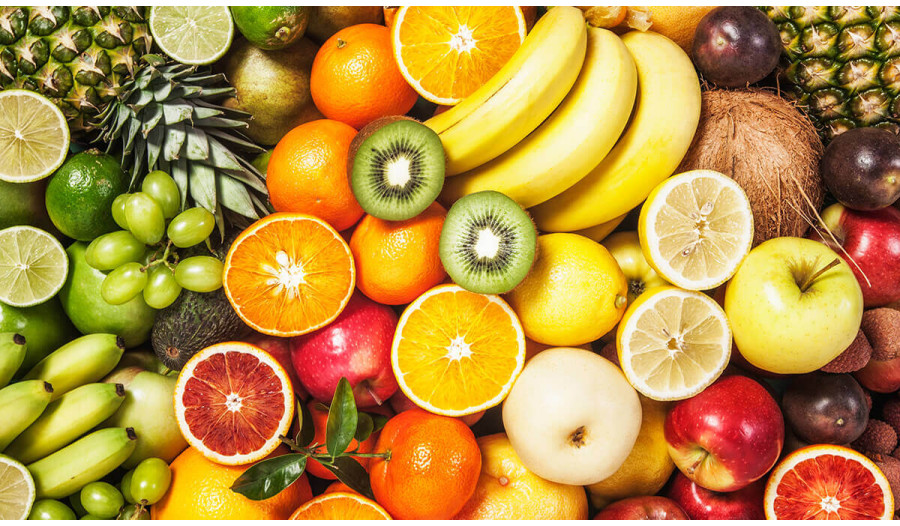
Is Fruit Good or Bad for Your Health? The Sweet Truth
"Eat more fruits and vegetables."
This is probably the world’s most common health recommendation. Everyone knows that fruits are healthy — they are real, whole foods. Most of them are also very convenient. Some people call them "nature's fast food" because they are so easy to carry and prepare. However, fruits are relatively high in sugar compared to other whole foods. For this reason, you might wonder whether they are truly healthy after all. This article sheds some light on the subject.
Excessive Sugar is Bad, But Its Effects Depend on the Context
A lot of evidence has shown that excessive intake of added sugar is harmful. This includes table sugar (sucrose) and high-fructose corn syrup, both of which are about half glucose, half fructose.
One reason that excessive added sugar intake is harmful is the negative metabolic effects of fructose when consumed in large amounts.
Many people now believe that because added sugars are bad, the same must apply to fruits, which also contain fructose.
However, this is a misconception. Fructose is only harmful in large amounts, and it’s difficult to get excessive amounts of fructose from fruit.
Summary Evidence suggests that fructose can cause harm when consumed in excess. However, there is not enough fructose in fruit to cause concern.
Fruit Also Contains Fiber, Water and Significant Chewing Resistance
Eating whole fruit, it is almost impossible to consume enough fructose to cause harm.
Fruits are loaded with fiber, water and have significant chewing resistance.
For this reason, most fruits (like apples) take a while to eat and digest, meaning that the fructose hits the liver slowly.
Plus, fruit is incredibly filling. Most people will feel satisfied after eating one large apple, which contains 23 grams of sugar, 13 of which are fructose.
Compare that to a 16-ounce bottle of Coke, which contains 52 grams of sugar, 30 of which are fructose, and has no nutritional value.
A single apple would make you feel quite full and less inclined to eat more food. Conversely, a bottle of soda has remarkably poor satiety and people don't compensate for the sugar by eating less food.
When fructose hits your liver fast and in large amounts, as is the case when you drink soda, it can have adverse health effects over time.
However, when it hits your liver slowly and in small amounts, as is the case when you eat an apple, your body is well adapted to easily metabolize the fructose.
While eating large amounts of added sugar is harmful to most people, the same does not apply to fruit.
Summary Whole fruits take time to chew and digest. Because of this, you feel fuller and your body can easily tolerate the small amounts of fructose.
So, if you want to maximize fruits’ health effects, focus on ones that are rich in nutrients. Try fruits with more skin.
The skin of fruits is usually very rich in antioxidants and fiber. This is the reason that berries, which have greater amounts of skin, gram for gram, are often considered healthier than larger fruits.
It is also a good idea to switch things up and eat a variety of fruits because different fruits contain different nutrients.
Summary Fruits contain large amounts of important nutrients, including fiber, vitamins, minerals and various antioxidants and plant compounds.Most Studies Shoe Health Benefits
Multiple observational studies have shown that people who eat more fruits and vegetables have a lower risk of various diseases.
Many of the studies pool together fruits and vegetables, while some only look at fruits.
One review of nine studies found that each daily portion of fruit consumed reduced the risk of heart disease by 7%.
Also, a study including 9,665 US adults found that a high fruit and vegetable intake was associated with a 46% lower risk of diabetes in women, but there was no difference in men.
Furthermore, one study that looked at fruits and vegetables separately found that vegetables were associated with a reduced risk of breast cancer, but this didn’t apply to fruit .
Many other studies have shown that eating fruits and vegetables is associated with a lower risk of heart attack and stroke — the two leading causes of death in Western countries.
One study looked at how different types of fruit affect the risk of type 2 diabetes. Those who consumed the most grapes, apples and blueberries had the lowest risk, with blueberries having the strongest effect .
However, one problem with observational studies is that they cannot prove that the associations they detect are direct causal relationships.
People who eat the most fruit tend to be more health conscious, less likely to smoke and more likely to exercise.
That said, a few randomized controlled trials (real human experiments) have shown that increased fruit intake can lower blood pressure, reduce oxidative stress and improve glycemic control in diabetics.
Overall, it seems clear from the data that fruits have significant health benefits.


Leave A Comment